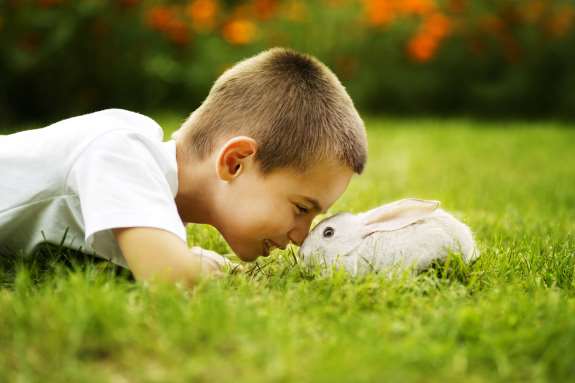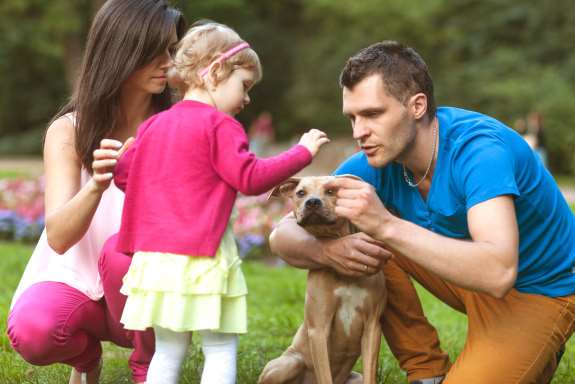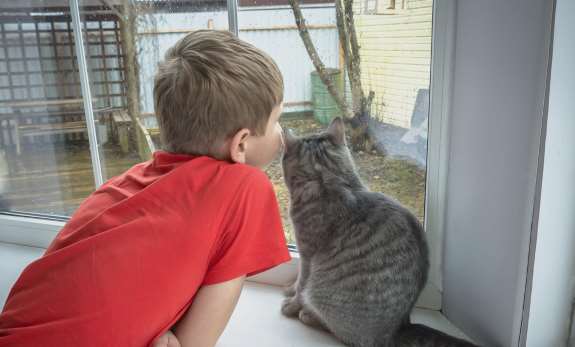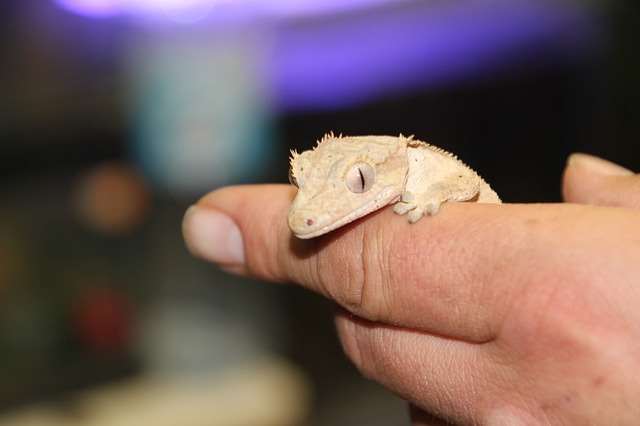- Small Dog Place Home
- Lifestyle
- Everyone Should Own a Pet
20 Reasons Why Everyone Should Own a Pet
By Janice Jones
Do you own a pet? That is probably a rhetorical question because if you are here on this page, you either own one or are thinking about it.
Many lifelong pet owners will tell you that they don't own a pet. Rather, the pet owns them. Consider what we do for our pets. Over the course of loving and living with a pet, we act as a food server, busboy, and cook, nurse, hair stylist, teacher, chauffeur, and all-purpose cleanup crew among others.
Even with all these roles, pets always give back more than the take.
Why Should You Own a Small Dog?
As you probably guessed, I am little biased towards small dogs, and for good reason, but small dogs are not the only pets that are very beneficial to people. Nevertheless...
- Small breed dogs are just the right size for nearly anyone to handle.
- They make the best choice for new pet owners because they are manageable.
- Small dogs are relatively easy to train but may be more difficult when it comes to housebreaking.
- Americans spend a lot of money on their pets, but small dogs are generally less expensive to own.
- Size matters when you purchase supplies and smaller items such as bowls, crates, beds, or toys are cheaper and lighter meaning that if the purchase is done online, the shipping is less.
- They also eat considerably less making your total food bill a fraction of what you’d pay with a large dog.
- Small dogs are portable and can fly with you in the cabin of an airplane or easily fit in a car seat or carrier during a road trip.
- There are many other benefits of small dogs, but the one that I like to mention the most (and most people would rather ignore) is what comes out after a full meal. Yes, I’m talking about feces or poop. It is so much easier to clean up after a four-pound dog than a 140 pound giant.
So, you’ve seen my bias, small dogs, but everyone is different, and while I love small dogs, they are not the only pets one can own. Anyone can own a pet, whether it is a tiny hamster, a small kitten, or a giant Great Dane. To set the record straight, I've lived with a fair number of pets over the course of my lifetime.
The Wide Variety of Pets People Enjoy
People should own a pet, but the types from which to choose are endless. How many can you name? Here are just a few of the types of pets that people prize. Within each type there are numerous sub-types.
Dogs
Cats
Horses
Goats
Chickens
Birds (Parrots, Finches, etc.)
Hamsters
Gerbils
Rats
Mice
Chinchilla
Turtles
Snakes
Lizards
Rabbits
Guinea Pigs
Hedgehogs
Ferrets
Sugar Gliders
Tarantulas
Scorpions
Freshwater Fish
Salt Water Fish
Potbellied Pigs
Ducks/Geese
Ponies
Hermit Crabs
What does pet ownership look like in the 21st century?
According to the American Pet Products Association, 67% of American households owned a pet in 2019-2000 which breaks down to roughly 84.9 million homes with a pet. Millennials are taking the lead.
Number of U.S. Households that Own a Pet (millions)
Bird
Cat
Dog
Horse
Freshwater Fish
Saltwater Fish
Reptile
Small Animal
7.9
47.1
60.2
2.6
12.5
2.5
4.7
6.7
To put this in perspective, there are 127.59 million households in the U.S. in 2018. It is obvious that people like to keep pets around, but why?
What are some of the reasons people give for owning a pet?
20 Reasons Why Everyone Should Own a Pet
I've listed 20 reasons why you should own a pet. There are probably many more.
1. You Should Own a Pet if You Crave Unconditional Love
There are few ways that humans can truly experience Unconditional Love but pets such as dogs can give us an idea of what they look like. If we take that seriously, we may find ourselves trying to mimic or live up to lofty ideals and practice on our fellow humans.
2. You Should Own a Pet if You Want to Reduce Your Stress Level
There have been numerous studies done on the effects of pet ownership. With as much stress as the typical person faces on a day-to-basis, it is no wonder that people search for ways to alleviate some of that stress.
3. You should own a pet if You want Companionship
Few of us live in large extended families in the 21st century. In 2016, it was reported that there are more than 35 million single-person households in the U.S. alone. That is a lot of people living alone some by choice, others by necessity. A pet can make them feel as they are never alone.

4. You Should Own a Pet if You Like Live Entertainment
There is no denying that our pets make us laugh and laughter is a good thing. Reports show that laughter is helpful for our physical, mental, and social health. Their antics can be cute, silly, or surprising. Many people will take that to the next level by filming their pets and providing videos and photos for others to enjoy.
5. Struggling for a Purpose in Life: You Should Own a Pet
Elderly, frail or individuals with poor physical or mental health can benefit from having something to care for. Everyone needs purpose in their lives and this is especially true for those who suffer from depression, victims of violence, and the elderly.
In the Journal of Social Psychology, one study reported that elderly dog owners felt less dissatisfaction with their social, physical and emotional states.
6. You Should Own a Pet if You Want to be a More Compassionate Person
Empathy is not something that seems to come naturally to some people. But it is a skill that can be taught. Compassion is similar.

7. You Should Get a Pet if You Want to Learn How to Communicate Non-verbally
People vary widely in their ability to read the body language of their fellow human beings. When it comes to pets, body language is all we must go on to communicate effectively.
This knowledge is not likely to develop overnight, but overtime, we can become experts on what our pets are trying to say. Just becoming aware of body language as a totally different way to communicate can make people more aware of what others (and themselves) are trying to express with their body's expressions.
8. You Should Get a Pet if You Need Protection
There is no denying that many people chose to keep a pet for protection. Guard dogs are not a phenomenon of the 21st century, rather they may be one of the very first reasons early hunters and gathers chose to keep dogs nearby. Other animals have an uncanny sense that something is about to happen and can alert their owners to danger.
9. You should own a pet if you rely on your pet's ability to sense danger
"Danger, danger, Will Robinson," states the robot in the Netflix's showing of Lost in Space. You don't need to program a pet to sense danger, they do it naturally. Whether it is a fire, an earthquake, or an approaching storm, animals have a way of responding to impending danger.
10. You Should Get a Pet if You Need an Excuse to Exercise
Watching a tank full of swimming fish may not be an ideal way to exercise, so this reason may only pertain to certain pets.
Walking a dog, however, is a great way for nearly anyone to get outside and exercise. Some breeds require much more exercise than others, so a daily walk may not be enough to keep these breeds happy.
Walking is just one way to exercise with your dog, other choices include running or jogging, biking, hiking, or doga (yoga for dogs). For something more organized, try agility for a great workout.
11. You need a pet if you struggle to establish a daily routine
Most pets thrive in an environment where there is a predictable routine that allows for meal time, rest time, pottying, and playing. People, especially children also benefit from a schedule that is fairly consistent from day to day. Having a schedule and sticking to it is one way to reduce chaos and stress. A good routine is vital for the organized life.
12. You Should Get a Pet if You Want to Meet People
Not only will a new pet provide a new friend, but it is likely that you will meet new people along the way that have shared interested. Whether it is during a class on rabbit care or an organized dog sport, if friendship is your goal, you can't go wrong with a pet.
It is hard to say how many people met others at a park or trail walking their dog. It is safe to say, though, that this might be the easiest and most comfortable way to meet new acquaintances or even partners.
13. You Should Own a Pet if You Want to Develop a New Interest

Whether you know it or not, taking on a new pet opens up a whole new body of knowledge to master. Not only does one learn about the pet, (personality, health, nutrition, care and much more) but also hands on skills of taking care of the pet on a daily basis.
New pet owners learn how to handle and hold the new pet, then graduate onto specific tasks required for caring such as how to clip dog nails or chicken wings.
It's hard to stop with just practical knowledge or the mastery of new skills, most pet owners want to show off their new interests in other ways such as wearing pet apparel or jewelry or decorating their home or office with items that remind them of their pet. Our pet card is one such company that caters to the desires of pet admirers, selling typical items that pet lovers want to own.
Before you know it you have developed an entire new interest or hobby that only gets better the more you learn.
14. Pet Ownership Can Make You Healthier: Reduced Blood Pressure
It has been widely studied and confirmed that petting a dog can lower one's blood pressure and heart rate. Dog owners are likely to have a healthier heart. Some studies have also suggested that dog owners are more likely to survive a heart attack compared to non-dog owners.
15. You Should Own a Pet if You Want a Great Counselor
If asked most pet owners, you are likely to tell you that they do talk to their pets. Sometimes these conversations involve what is happening at the moment such as, "I'll be back." Others may confide in their dog or carry on more length conversations.
Something changes when we share our thoughts verbally and that is the beginning of the counselor-client relationship. Naturally dogs can't talk back, but they are excellent listeners and will make eye contact, not argue, not talk back, and not judge.
These are all the traits of an excellent counselor. Many people find it therapeutic to just hear their thoughts spoken out loud.
16. Get a Pet to help you Discover Yourself
Some of the most surprising ways we learn about ourselves is through interactions and relationships with others. From debating a controversial subject to how you act around different people, all give you glimpse into your own psyche. Some people are more aware than others.
Dogs can play a role by just being themselves. You can learn your tolerance levels, how patient you are, how adept you are a manual care tasks to how well you manage emergencies and upsets.
Many young people will choose a dog or cat as a forerunner to starting a family. Practicing with a dog may make some parenting chores easier.
17. You Should Own a Pet to Improve Your Mood
Those who suffer from depression, bipolar, anxiety or other debilitating mental health disorders can benefit from owning a pet. The Huffington Post reports that elderly women and HIV-positive men report less depression than others with the same demographics. There is also evidence that therapy dogs have a positive effect on everyone.
18. Parents: You Should Own a Pet to Help You Teach Important Lessons to Your Children
Hands on learning is the best way to teach young children and what could be better than holding, petting, and playing with a pet. Through the guidance of a caring adult, children can learn gentle ways to handle an animal, empathy for living creatures, and even practical information such as what do chickens eat.

19. You Should Own a Pet If You Want to Improve Your Child's Immune System
Doctors used to think that dogs and cats were a cause of allergies in children, but the thinking has changed. Dr. Gern, from the University of Wisconsin-Madison demonstrated that having a pet actually lowers a child's chances of developing allergies. Children exposed at a very young age to animals tend to develop stronger immune systems.
Gern, Dr. James E. "Effects of dog ownership and genotype on immune development and atopy in infancy." Journal of Allergy and Clinical Immunology. 02/11/2004.
20. Own a pet to improve the quality of your life
Many people rely on service dogs to detect oncoming seizures or alert their diabetic owners of an impending drop in blood sugar. We have dogs that help hearing impaired and blind people live independently.
There are also dogs that will help people with mobility problems. Perhaps you don't have any specific physical limitations, but need the comfort that an emotional support animal can provide.
With All These Advantages, Are There Any Animals That Don't Make Great Pets?
We have named so many different kinds of animals, mammals, reptiles, birds, amphibians, and fish that make wonderful pets. But some animals should not be caught and kept as pets.
Wild animals should not be pets - - skunks, raccoons, foxes, squirrels, coyotes, bobcats, and wild birds can be dangerous and unpredictable. They also carry diseases some of which can be transmitted to you and your other pets.
If you find an injured animal or a nest of baby animals, it is better that you take them to a wildlife rehabilitators.
Large (zoo) animals should not be kept as pets as they require special diets and can be dangerous. Even the tamest lion and tiger could escape and cause major havoc to the neighboring area.
Nonhuman primates, though popular in the past, don't make good pets either. They can bite and do carry disease that can affect you. So say goodbye to this group of animals and pick one that has been domesticated and raised from birth by humans.
Bottom Line
Have I convinced you that everyone should own a pet? The bottom line is that pets are just good for us.
They improve our physical and emotional health, the build confidence and self esteem, they can even detect and warn their owners about such this as an oncoming seizure or low blood sugar. There are numerous health benefits for people of all ages and they can greatly enhance our social life.
About Janice (author and voice behind this site)
Having lived with dogs and cats most of her life, Janice served as a veterinary technician for ten years in Maryland and twelve years as a Shih Tzu dog breeder in Ohio.
Her education includes undergraduate degrees in Psychology with a minor in biology, Early Childhood Education, and Nursing, and a master's in Mental Health Counseling.
She is a lifelong learner, a dog lover, and passionate about the welfare of animals. Her favorite breed for over 50 years has been the Shih Tzu, but she has also lived with Poodles, Maltese, Yorkshire Terriers, Beagles, English Bulldogs, Carin Terriers, and a Cocker Spaniel.
When not writing, reading, and researching dog-related topics, she likes to spend time with her eight Shih Tzu dogs, husband, and family, as well as knitting and crocheting. She is also the voice behind Miracle Shih Tzu and Smart-Knit-Crocheting
Does This Article Deserve Your Thumbs Up?
We always appreciate your support and encouragement. Your thumbs up means so much to us. Please like this article.
If you find this page or any page on Small Dog Place Helpful, or useful in anyway, I'd love it if you would click the small heart found on the bottom right of each page.
You can also share or bookmark this page -- just click on the:

Free Monthly Newsletter
Sign Up for Our Free Newsletter and get our Free Gift to You.
my E-book, The Top 10 Mistakes People Make When Choosing a Dog (and how to avoid them)




